Quick Navigation
The ability to use a camera without running a cable to an electrical outlet means that you may place the camera in any location. There are many situations where this is convenient, such as on a remote porch or at an overhead site. As long as there is sufficient light outside, then the camera can continue to operate and record images. Does the most common and biggest issue then become what is the battery life like? We’re not talking about just the charging battery life but the actual physical battery since this is usually the first thing to give out in a camera.
Before we proceed, you may want to check this best battery powered security camera guide we’ve made for you!
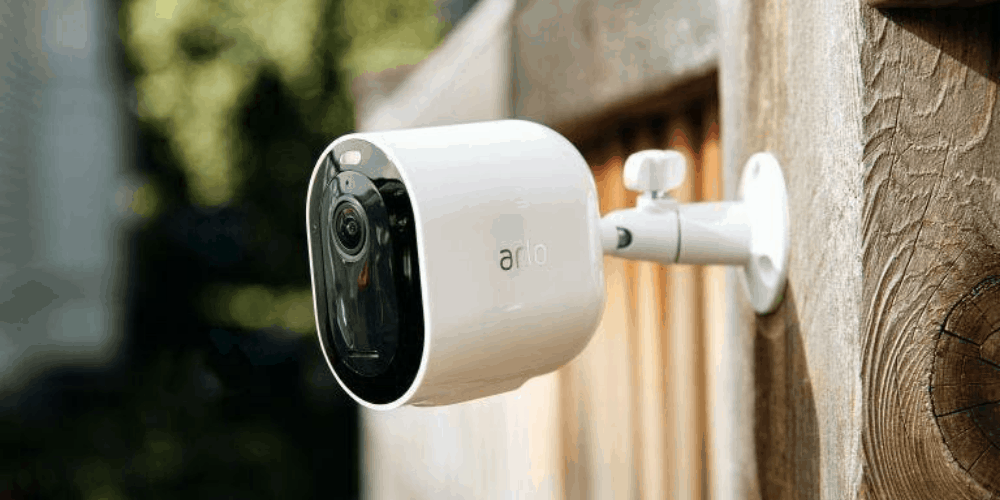
How long do battery-powered security cameras last?
To ensure your security camera’s longevity, it’s important to choose a lithium-ion-powered camera. The physical batteries last for up to three years when used continuously (without being turned off) and two years when cameras are turned off for power savings.
The best camera batteries are those that have a long lifespan. These are popular due to their low energy loss. They also tend to be one of the most convenient options due to their affordable cost and easy replacement.
How often do you have to charge wireless security cameras?
Spy cameras have different characteristics and these demand different energy consumption standards. The specific use desired is paramount to determine the time of a certain camera and the conditions under which it may be used. (1)
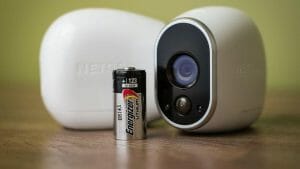 Depending on the WiFi security camera’s feature and model, the battery charge can last up to 6 months with a single charge. However, the average time for most security cameras is at least two months when it comes to their usage time.
Depending on the WiFi security camera’s feature and model, the battery charge can last up to 6 months with a single charge. However, the average time for most security cameras is at least two months when it comes to their usage time.
Also, some security cameras may last longer depending on whether they are a PTZ security camera or not. pan tilt zoom security cameras expend more energy because they need to rotate.
Do wireless security cameras run on batteries?
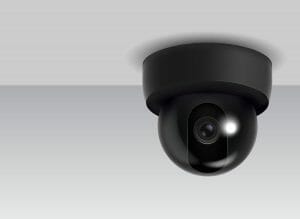 Most wireless security cameras are hard-wired to a power source. Very few models on the market use batteries that allow for completely wireless operation.
Most wireless security cameras are hard-wired to a power source. Very few models on the market use batteries that allow for completely wireless operation.
If you’re looking for convenience, wireless security cameras can be a great fit.
What type of rechargeable battery is best for security cameras?
The two most popular types of rechargeable batteries are nickel-metal hydride batteries and lithium-ion batteries. These types of rechargeable batteries do not work in the same way, and their pros and cons must be considered separately.
Nickel-metal hydride batteries
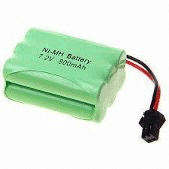 The energy density combined with the compatibility of this type of battery makes it one of the most accessible options to use. The average milliamps per hour of these batteries are usually higher than lithium-ion batteries.
The energy density combined with the compatibility of this type of battery makes it one of the most accessible options to use. The average milliamps per hour of these batteries are usually higher than lithium-ion batteries.
The variety of sizes is more abundant by manufacturers, which improves compatibility. It is even a safer battery due to the lower amount of active materials.
It is battery sensitive to extreme temperatures and requires a longer charging time. The self-discharge rate is very high, and it is not recommended for use with low-charge devices.
Lithium-ion battery
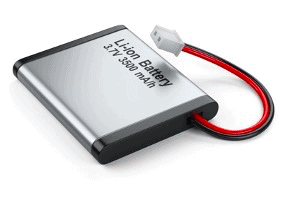 These batteries are usually much lighter and smaller than the previous batteries. The voltage output is also higher, while the self-discharge rate is significantly lower.
These batteries are usually much lighter and smaller than the previous batteries. The voltage output is also higher, while the self-discharge rate is significantly lower.
These batteries require less time to recharge and have a higher tolerance to high temperatures. Per gram of battery, these units can store more energy.
The disadvantages are that lithium-ion batteries provide a lower internal capacity and more limited compatibility than nickel-metal hydride batteries. The battery cannot be fully discharged, resulting in some damage.
Conclusion
Usage times are different for each type of camera. For an indoor/outdoor camera with infrared night vision, one can expect between 8-12 hours of continuous operation per charge, depending on the battery type.
After knowing this information you may want to create your own project, this learning guide on how to build a battery powered wifi security camera might be good for you. Until next time!
References
(1) energy consumption – https://www.sciencedirect.com/topics/earth-and-planetary-sciences/energy-consumption
(2) types of rechargeable batteries – https://turbofuture.com/misc/Which-is-better-Nickel-Metal-Hydride-NiMH-or-Lithium-Ion-Li-ion-batteries
